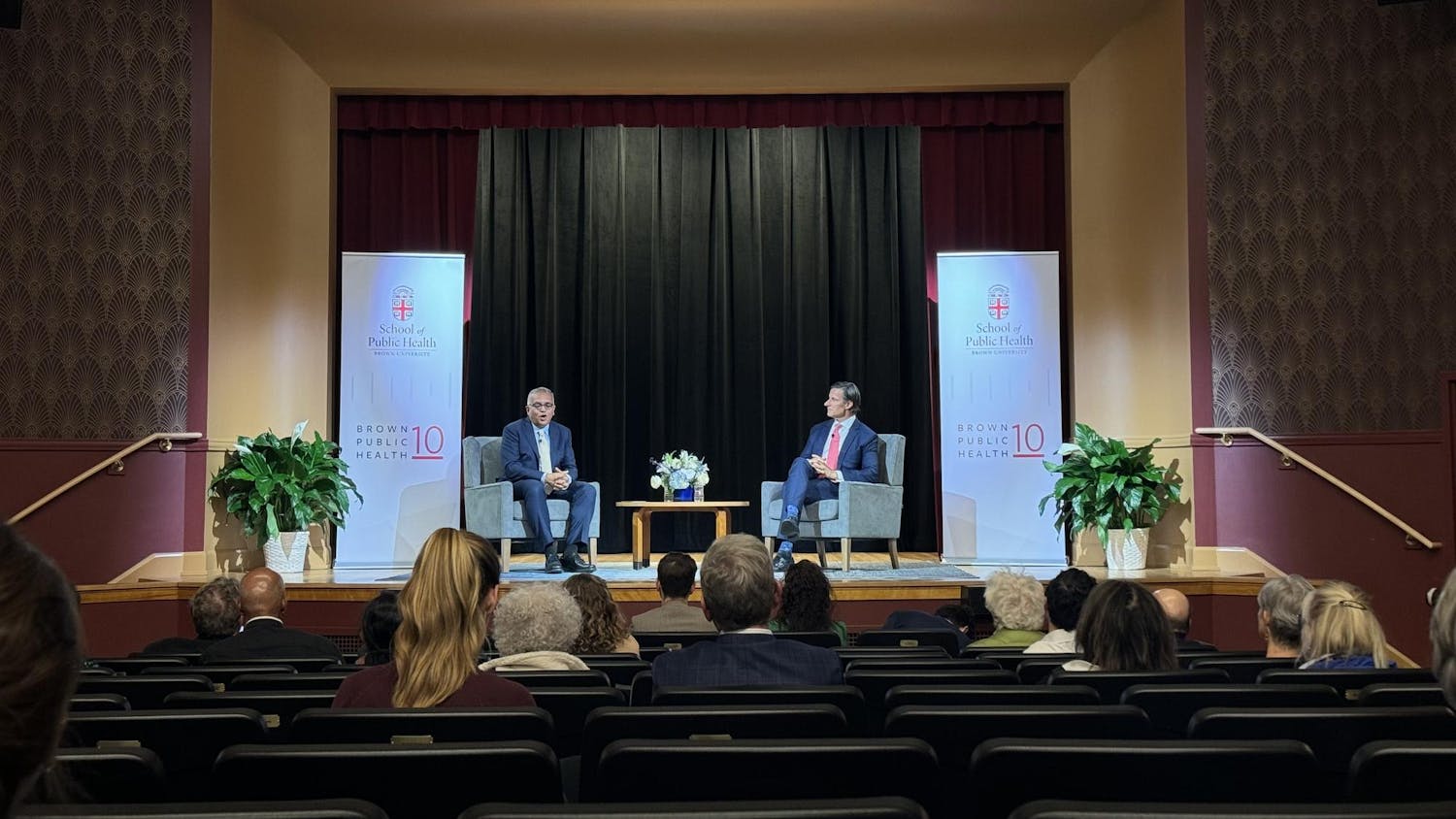The University advertises conducting research as a “vital part of the undergraduate experience” on its admissions website, but administrators do not know how many students actually conduct research during their undergraduate years.
Administrators track the total number of Undergraduate Teaching and Research Awards and the number of students enrolled in independent studies. Individual departments keep track of the number of students on payroll, but no one tracks students who participate in research on a volunteer basis, nor has anyone compiled the data that do exist, said Associate Dean of the College for Science David Targan ’78.
Still, students and faculty members said Brown has a strong culture of undergraduate research, noting the plentiful, mutually beneficial opportunities available both on and off campus.
Brown’s image
The University has “an unusually good set of opportunities for undergraduates to get involved in,” said Barry Connors, professor and chair of the department of neuroscience.
Research is a major part of the undergraduate experience because the number of graduate students is relatively low compared to the number of undergraduates, Targan said.
At other universities, biology faculty members are associated more with their respective medical schools than with undergraduates, Connors said. But at Brown, the large majority of biology faculty members is on the main campus and the majority of their teaching is for undergraduates, he added.
During the 2012-2013 school year, 363 students undertook directed research projects and 125 students conducted research in biology through funding from UTRAs, Royce Fellowships, the Brown International Scholars Program and the Howard Hughes Medical Institute, according to a report compiled by Marjorie Thompson, associate dean of biological sciences and adjunct associate professor of biology.
David Gonzalez ’14 and Kasia Sierzputowska ’13.5 said that the University’s reputation as a place that supports undergraduate student research is the primary reason why they came to Brown. “It’s cookie-cutter, and it’s what everyone says, but it’s true. Brown is phenomenal at this,” Gonzalez said of the University’s research culture.
From infants to bats to molecules
Undergraduates are involved in a wide range of research projects, engaging with infants, bats and molecules among other subjects.
Some students have gotten involved in research by reaching out to professors of their classes. Adam Horowitz ’16, who works in Professor of Biology Stephen Helfand’s lab, which focuses on aging in fruit flies, said he began working in the lab after taking Helfand’s first-year seminar and emailing him.
Michael DeBerardine ’15 also started working in the lab of one of his first professors.“The mentorship relationship is worth a lot more than just going to a lecture,” he said of his experience in the lab.
Corey Holman ’16 said she knew the University had a bat lab before she even arrived on campus and had always wanted to work in it. She fulfilled her dream this semester and is now working with the bats.
Other students have sought opportunities off campus in labs associated with the Alpert Medical School.
Gonzalez has been working in labs associated with the Med School since his sophomore year.
Working in a lab is like a job, Gonzalez said, noting that he goes to the lab every day and works around 25-30 hours per week. “Sometimes it feels like I’m leading two lives,” he said. “I have my work-professional life downtown and my academic career.”
“I absolutely love what I do,” Gonzalez added. “I’m very lucky in that (my supervisor) has treated me less like an undergraduate slave and more like a researcher.”
Most students said they found it easy to get involved in University research, but Mary O’Connor ’16 stressed that professors “don’t hand it out to you.” If students actively seek out opportunities, they will be able to get a position, she said.
Gonzalez said that unlike in the classroom, working in a lab provides a creative outlet.
“In class, they teach the black and white and equations,” Holman said. “In the lab, you get to discover things that are being pioneered right there in front of you.”
Sierzputowska said lab work is also useful for life outside of the classroom, especially now that she is applying and interviewing for jobs. She has worked in Professor of Biology Robert Reenan’s genetics lab since she was a first-year. “I love the lab, I live in the lab. The lab has always been a priority of mine,” she said, adding that talking about her lab work is helpful in interviews.
Targan said doing research is “a better experience because you’re living it,” particularly for students who struggle to demonstrate their knowledge on exams.
Professor perspectives
Connors said he usually has two or three undergraduates working in his lab throughout the year. Connors added that undergraduates start to get involved by coming to lab meetings once a week to get an idea of his research.
The “trick” of having undergraduates in the lab is to pair them with a graduate mentor, Connors said. “It’s important for (post-doctoral and graduate students) who will go on to be teachers to get experience mentoring other students. It’s something they only learn by doing.”
Wayne Bowen, professor of biology and chair of the department of molecular pharmacology, physiology and biotechnology, said he usually has around three undergraduates in his lab each year and that they “bring a lot of enthusiasm.”
Usually, undergraduates have never worked in a lab before, Bowen said. After they are trained, students get their own individual projects — “something they can call their own,” Bowen said.
A large part of working in a lab is learning to deal with disappointment, which is an important experience for undergraduates, Bowen said. Unlike in lab classes, “you’re discovering new things and don’t know what’s supposed to happen or how it will turn out.”
Professor of Chemistry Richard Stratt has three undergraduate students working in his lab this semester, adding that they have the same responsibilities as do the graduate students.
Professor of Chemistry and Biochemistry David Cane said undergraduate research gives students an opportunity to experiment and get “a long drink of a lot of different beverages,” adding that this is important because as people progress further along in their careers, it becomes harder to “get out of the path you committed yourself to.”
Bowen said there are faculty members who do not like to work with undergraduates due to the training they must give them or because their work is too long-term for undergrads, but that this is the exception rather than the rule. Eleven of the 13 neuroscience faculty members have undergraduates doing research in their labs, Bowen wrote in an email to The Herald.
Overall, Connors said professors would not choose to work with undergraduates if it were not mutually beneficial. “There are undergrads who have become better than grads,” Connors said. And they do research while “doing 16 other things like a typical Brown undergrad.”
Potential improvements
Brown is strong in undergraduate research, Stratt said, but it doesn’t do as much as it should or could.
“It’s not set up that (students) may be a valuable part of the community outside of the (academic) term,” Stratt said. Housing students for a short period before or after terms could help to rectify this, he said.
Stratt also suggested that the University create a forum for people who are involved in doing research with undergraduates “to get together and support each other.”
The development of a mentorship program between students doing research and those who want to find opportunities could be helpful because “a lot of people don’t know how to get started,” Sierzputowska said.
DeBerardine said the University could help to “catalyze” relationships between students and professors more in the future.
The University does a great job supporting undergraduate research and advertising itself this way, but the contribution of undergraduate students to research “is not always as celebrated as it should be,” Sierzputowska said.

ADVERTISEMENT




